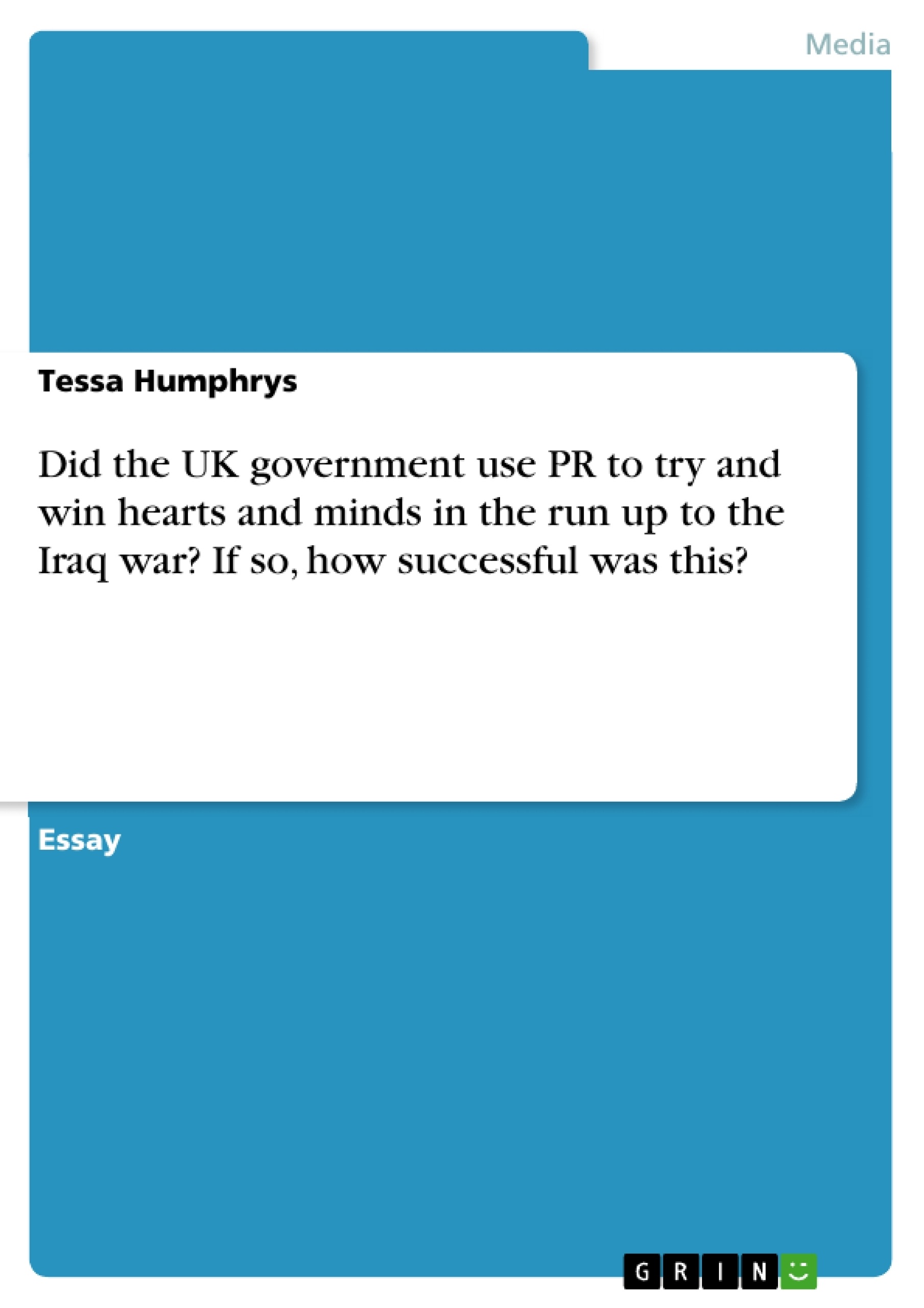The 2003 Iraq conflict was divisive and controversial. The UK government faced unprecedented levels of public protest during the run up to the conflict as well as a hostile reception from former United Nations (UN) allies over whether to join America in invading.
Winning the ‘hearts and minds’ of all stakeholders was crucial if the invasion was to be supported and justified, and the UK government undoubtedly employed public relations (PR) techniques to attempt to do just that.
This essay argues that PR plays a part in the build up of any conflict, and discusses the relationship between PR and propaganda in wartime. It puts forward Tony Blair’s role in ‘selling’ the conflict to the British public, how his own brand of public relations helped massage public opinion, and how intelligence, the issue of weapons of mass destruction (WMDs) and the use of the phrase “war on terror” were used to package the war conveniently for the public. It also examines the British media’s reporting of the build up of the conflict and questions whether it was the subject of management by the UK government, and to what extent it influenced UK public opinion on the issue.
Did the UK government use PR to try and win hearts and minds in the run up to the Iraq war? If so, how successful was this?

Essay , 2010 , 10 Pages , Grade: 1.0
Autor:in: Tessa Humphrys (Author)
Communications - Public Relations, Advertising, Marketing, Social Media
Excerpt & Details Look inside the ebook

